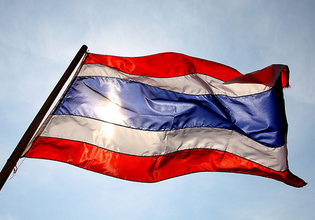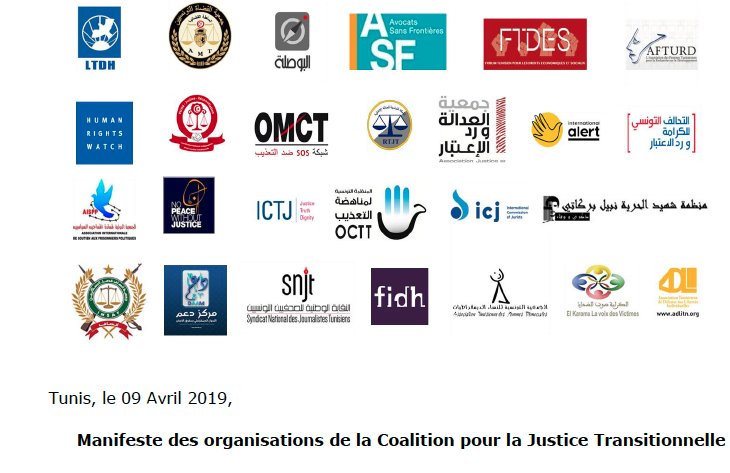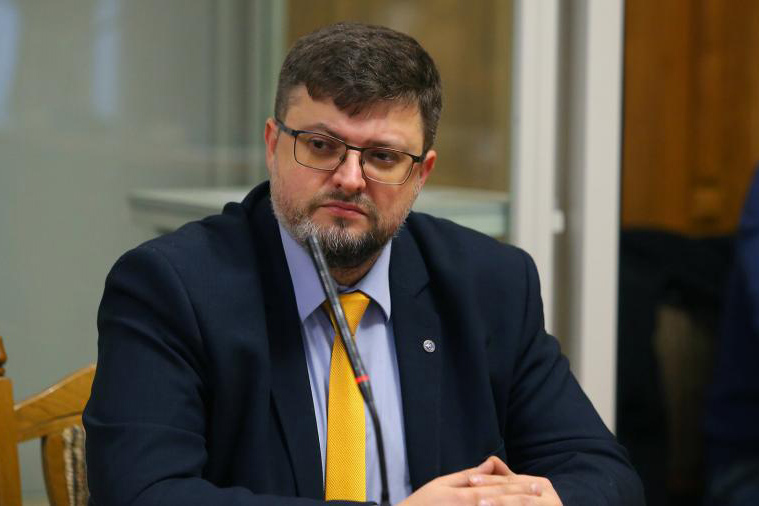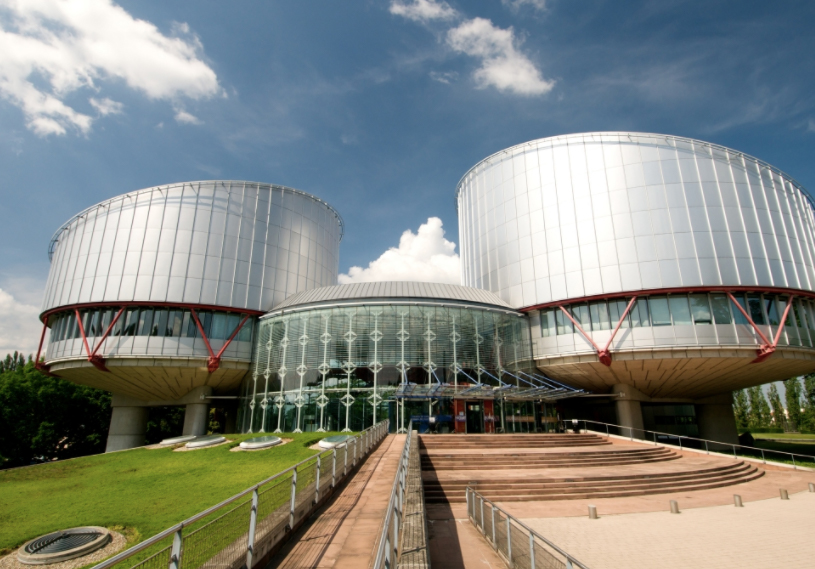
Apr 22, 2019 | Advocacy, News, Non-legal submissions
Today, the ICJ submitted recommendations to the Council of the State calling for the repeal or amendment of National Council for Peace and Order (NCPO) and Head of the NCPO (HNCPO) orders and announcements in line with Thailand’s international human rights law obligations.
The ICJ was informed by the Ministry of Foreign Affairs that the Council of the State had been tasked to review the necessity and relevance of announcements, orders, and acts of the NCPO and of the HNCPO in February 2019.
The review process is in line with Thailand’s declaration to the UN Human Rights Committee in its Follow-Up to the Concluding Observations of the Committee, submitted on 18 July and published on 10 August 2018.
In its submission to the Council of the State, the ICJ has called for the review process of HNCPO and NCPO announcements and orders to be carried out with increased public participation, openness, and transparency.
The ICJ has also made recommendations on the repeal and amendment of the following HNCPO and NCPO orders and announcements since they are clearly inconsistent with Thailand’s international human rights law obligations and the 2017 Constitution, and are neither necessary, nor proportionate, nor relevant to the current situation:
- Orders that provide the military with superior powers beyond civilian authorities;
- Orders that allow military courts to prosecute civilians;
- Orders that infringe on the rights to freedom of expression and assembly, restrict media freedom and the right to information; and
- Orders that infringe on community and environmental rights.
As main priorities, the ICJ has recommended that:
a) the exercising of law enforcement powers by military personnel to arrest and detain suspects in places not formally recognized as places of detention without judicial review should end;
b) all cases of civilians facing proceedings before military courts be transferred to civilian courts, and all civilians convicted of an offence in military courts be guaranteed a re-trial in civilian courts; and
c) all other HNCPO and NCPO orders and announcements should be repealed or amended to bring Thailand in compliance with its international human rights law obligations, and to ensure that the rights to freedom of expression, opinion and assembly, and environmental rights, among others, be respected.
Thailand-civilian prosecutions military courts-Advocacy-Non-legal submissions-2019-ENG (PDF in English)
Thailand-civilian prosecutions military courts-Advocacy-Non-legal submissions-2019-THAI (PDF in Thailand)
Further readings:
Post coup’s legal frameworks
Thailand: ICJ alarmed at increasing use of arbitrary powers under Article 44
Joint submission to the UN Human Rights Committee by the ICJ and Thai Lawyers for Human Rights
The ICJ and other groups made a joint follow-up submission to the UN Human Rights Committee
Thailand: statement to UN on situation for human rights
ICJ and Thai Lawyers for Human RIghts’ submission to the Universal Periodic Review (UPR) of Thailand
Military officers in law enforcement missions
Thailand: immediately end the practice of arbitrarily detaining persons in unofficial places of detention
Thailand: The ICJ and Human Rights Watch express concerns over detentions
The Use of Military Court
Thailand: transfer all civilians to civilian courts
Thailand: End prosecution of civilians in military tribunals
Thailand: ICJ welcomes Order phasing out prosecution of civilians in military courts but government must do much more
Freedom of expression and assembly
Thailand: lifting of the ban on political activities is welcome but more is needed
Thailand: Lift ban on political gatherings and fully reinstate all fundamental freedoms in Thailand
Thailand: misuse of laws restricts fundamental freedoms (UN statement)
Community and environmental rights
“Development” and its discontents in Thailand
Thailand: ICJ submission to the UN Committee on Economic, Social and Cultural Rights

Apr 12, 2019 | Advocacy, News, Open letters
The ICJ sent a letter urging Singapore’s government to refrain from passing into law the Protection from Online Falsehoods and Manipulation Bill 2019 (‘Online Falsehoods Bill’) in its current form.
The letter was sent to Singapore’s Prime Minister, Deputy Prime Ministers, Minister for Law and Speaker of the Parliament.
The bill is reportedly expected to be adopted and come into force in the second half of 2019.
The ICJ acknowledged the efforts of Singapore’s government to attempt to counteract potential infringements on human rights and fundamental freedoms which may emerge from abusive communications involving the spread of misinformation. It noted however that the bill may, contrary to the object and purpose of its introduction, result in far-reaching limitations on the rights to freedom of expression, opinion and information.
The ICJ indicated that its provisions present a real risk that it can be wielded in an arbitrary manner to curtail important discussion of matters of public interest in the public sphere, including content critical of the government. Critical dissent, free exchange and development of opinions, and free access to information are necessary to maintain an informed society and ensure transparency, accountability and informed debate on crucial matters of public interest.
The letter included a legal briefing highlighting the ICJ’s concerns regarding provisions of the bill which contravene international human rights law and standards.
Singapore-online regulation bill letter-advocacy-open letter-2019-ENG Letter (PDF)
Singapore-online regulation bill briefing-advocacy-open letter-2019-ENG Briefing (PDF)
See also
ICJ, ‘Singapore: Parliament must reject internet regulation bill that threatens freedom of expression’, 4 April 2019, https://www.icj.org/singapore-parliament-must-reject-internet-regulation-bill-that-threatens-freedom-of-expression/

Apr 12, 2019 | Plaidoyer
Le manifeste appelle les autorités tunisiennes à s’engager pour le suivi et l’application du processus de justice transitionnelle après la publication du rapport final de l’Instance Vérité et Dignité.
Le manifeste a été signé par la Commission Internationale de Juristes avec d’autres organisations membres de la Coalition pour la justice transitionnelle.
Il peut être téléchargé ici:
Tunisia-Manifeste coalition-Advocacy-2019-FRE (version française, en PDF)
Tunisia-Manifeste coalition-Advocacy-2019-ARA (version arabe, en PDF)

Apr 12, 2019 | News
Today, the ICJ expressed concern at the criminal proceedings against Andriy Domanskyi, a lawyer practicing in Ukraine, known for representing individuals facing political prosecution and defending journalists.
The ICJ has called on the Ukrainian authorities to drop any criminal proceedings which may result from the identification of the lawyer with his clients and to ensure that the lawyer’s rights are protected and that he can continue to carry out his professional activity without improper interference, intimidation or threat.
On 5 April Domanskyi was issued a note of suspicion in a criminal proceeding reportedly initiated in 2013 concerning the “privatization of municipal premises”.
Criminal proceedings were initiated one day after the commencement on 4 April of a trial of his client Kirill Vyshynskyi, Chief Editor of RIA Novosti Ukraine recently changed with high treason and a number of other crimes.
Domanskyi considers these criminal proceedings against him are linked with his professional activity and are a means of putting pressure on him as a result of work on this high-profile case.
Earlier this year, on 17 January, while Domanskyi represented Vyshynskyi in a court hearing on the lawfulness of his arrest in Kherson, the lawyer’s home, office premises and his assistant’s relatives’ premises in Kyiv were searched by the officers of the General Prosecutor’s Office.
This took place only a few days after the Security Service of Ukraine (SBU) publicly announced that the investigation regarding Vyshynskyi had been terminated.
While these searches were sanctioned by the court, another search was conducted on the same day and was sanctioned by an investigator rather than the Prosecutor General or his Deputy or the Prosecutor of Kyiv City, as provided by the Law of Ukraine “On advokatura and advocates’ activity”.
The lawyer connected these searches to the fact that at that time he repeatedly filed motions to release Vyshynskyi on bail, with himself acting as a guarantor on the bail.
Any criminal proceedings against the lawyer amounting to harassment or reprisals for his professional activities would be highly problematic.
In recent years, the ICJ has witnessed an alarming increase in the number of cases of interference with the work of lawyers, including use of legal proceedings, threats or physical attacks on lawyers in Ukraine.
As was confirmed during an ICJ mission carried out only last month, searches of lawyers’ premises are often performed without due respect to procedures prescribed by law and result in undermining the independent work of lawyers and respect of procedural rights guarantees under national and international law.
Principle 18 of the UN Basic Principles on the Role of Lawyers states that, “lawyers shall not be identified with their clients or their clients’ causes as a result of discharging their functions.”
As affirmed by the Basic Principles, governments must ensure that lawyers “are able to perform all of their professional functions without intimidation, hindrance, harassment or improper interference” and “shall not suffer, or be threatened with, prosecution or administrative, economic or other sanctions for any action taken in accordance with recognized professional duties, standards and ethics.”
“Investigative and other law enforcement authorities in Ukraine must stop harassment of lawyers, including by improperly associating them with their clients or their clients’ causes, and carrying out searches of lawyers’ offices and documents in violation of national law and procedure as well as international human rights standards,” said Temur Shakirov, ICJ Senior Legal Adviser.
“In this regard, the ICJ stresses that this troubling pattern of attacks affects not only individual lawyers but also the legal professional as a whole. The Ukrainian authorities should take prompt and effective measures to ensure that lawyers are not identified with their clients or their client’s causes and that the safety and independence of lawyers is guaranteed in law and in practice,” he added.
Additional information:
On 4-8 March, the ICJ carried out a research mission to Ukraine on the independence and security of lawyers. Following the mission, the ICJ called on the Ukrainian authorities to take urgent steps to ensure the physical safety of lawyers and to bring to justice those responsible for a series of violent attacks against them.
Ukraine-Domansky statement-Advocacy-2019-UKR (story in Ukrainian, PDF)

Apr 12, 2019 | News
Today in Ankara the ICJ convened a workshop for lawyers and civil society practitioners on the implementation of judgments of the European Court of Human rights.
The 29 participants in the workshop will examine methods and tools available to guarantee the effective execution of the European Court of Human Rights judgments in Turkey.
The participants in the workshop will discuss the use of the Committee of Ministers’ judgment execution process and the potential of “rule 9“submissions, as well as ways to advance the implementation of the judgments oft he European Court of Human Rights in Turkey.
The workshop will share good practices with a view to promoting solutions and opportunities for cooperation in the matter.
This one-day event is organized by ICJ, in cooperation with its partners Kapasite Geliştirme Derneği, Human Rights Joint Platform and European Implementation Network, as part of the EU co-financed project Rebuilding and Ensuring Access to justice with civil society in Turkey.
The project is funded by the European Instrument for Democracy and Human Rights (EIDHR) of the European Union.









